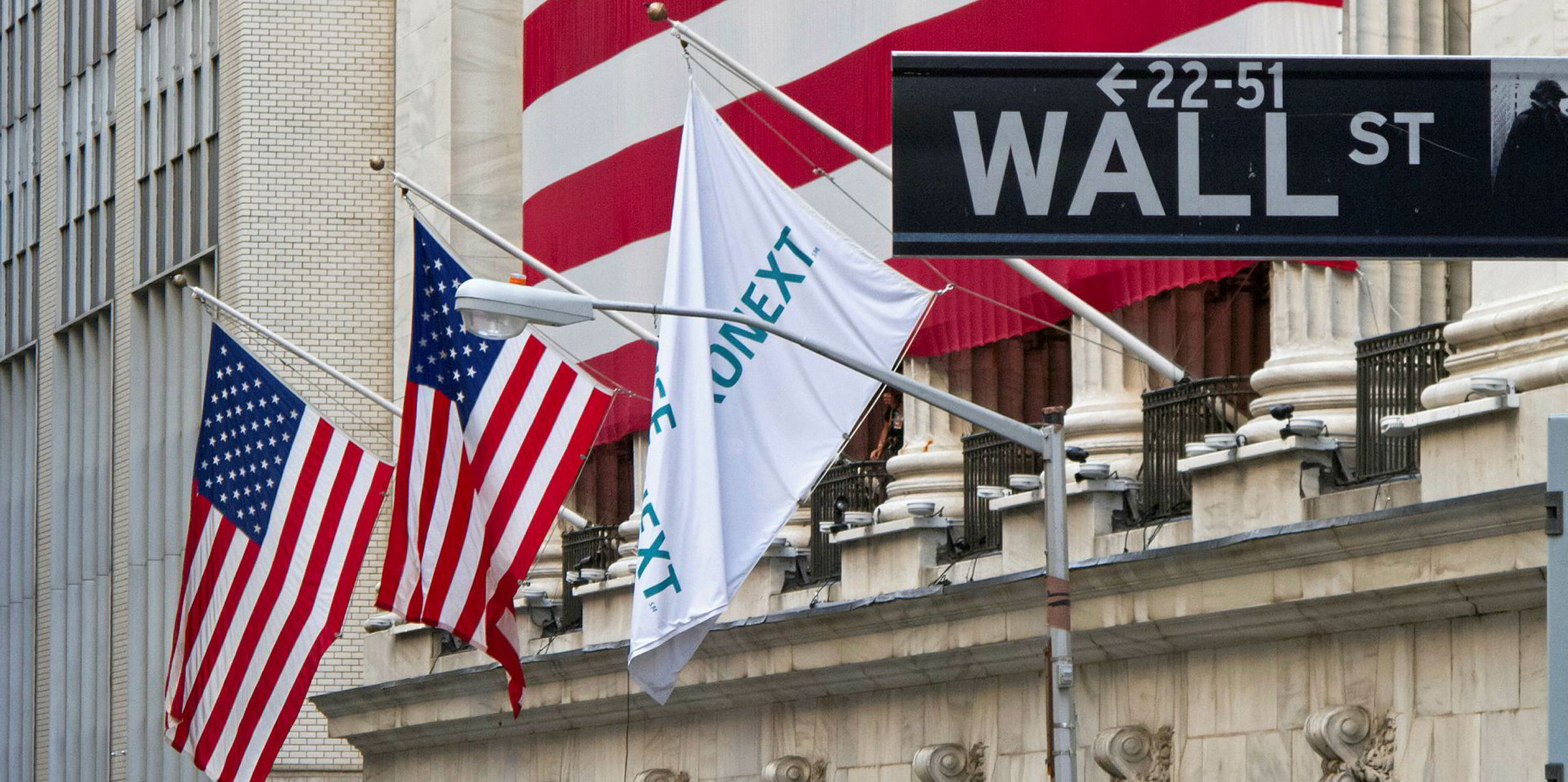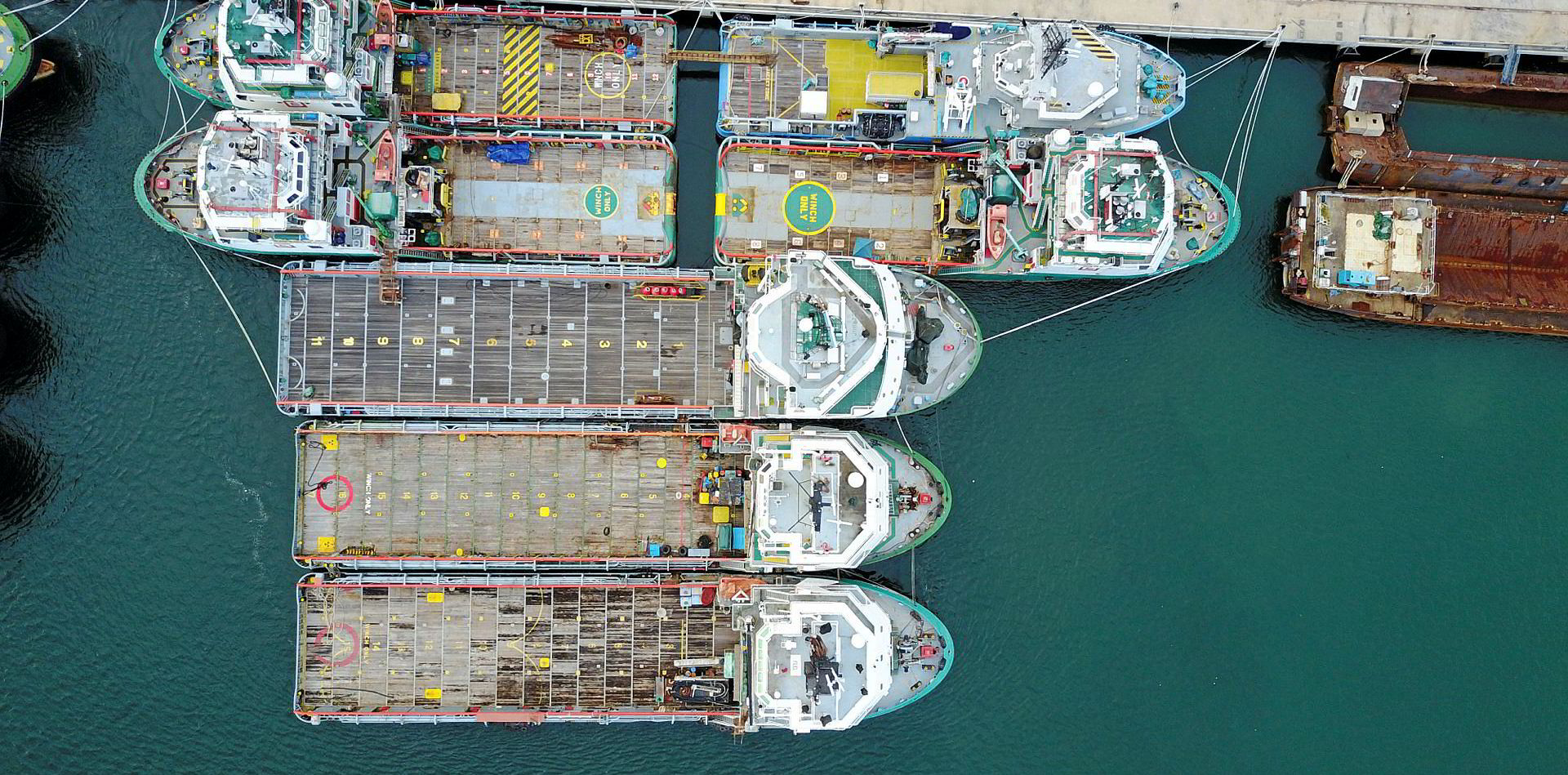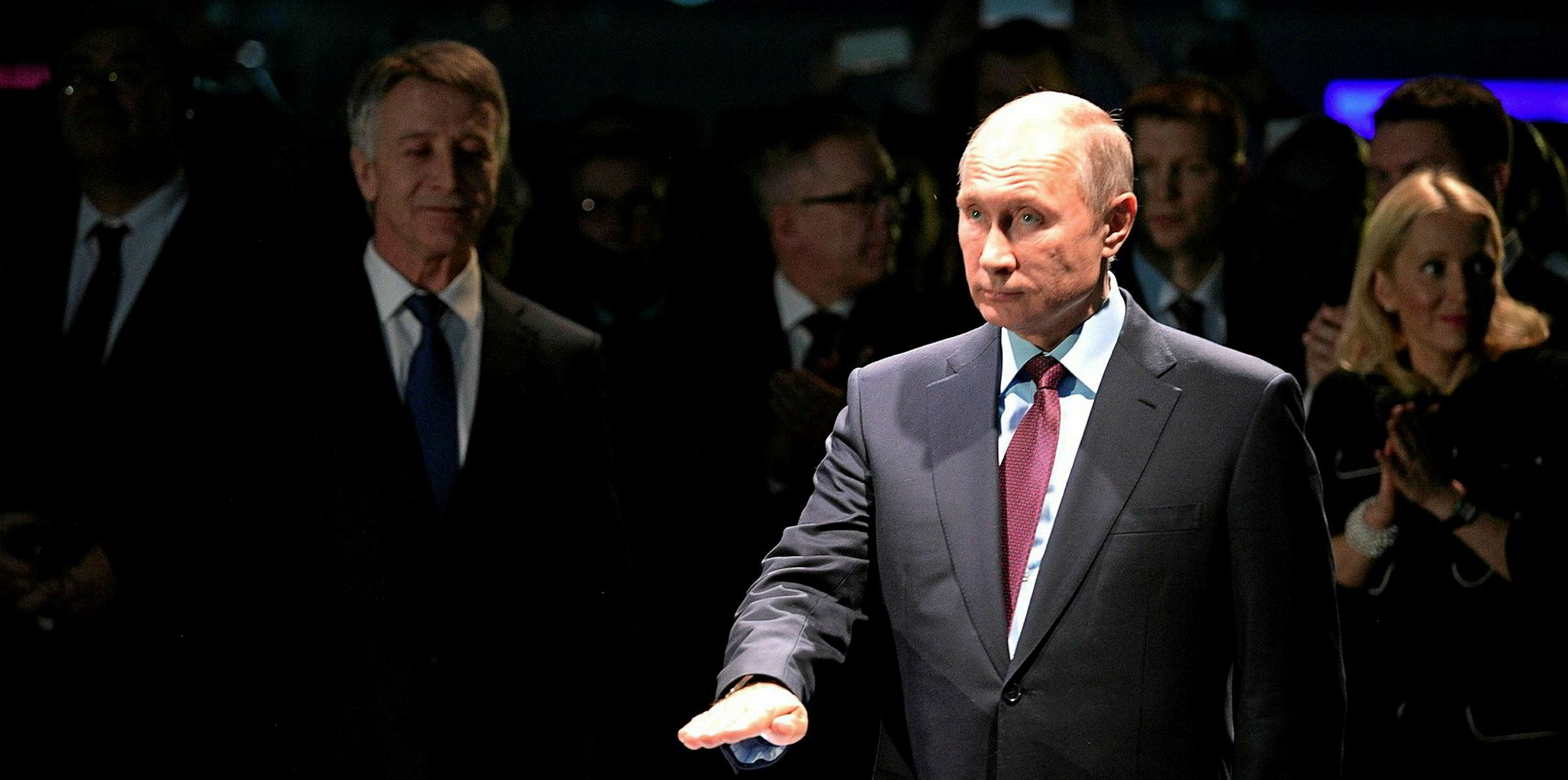Tanker earnings and shares are rising as shipowners turn bullish on more opportunities for floating storage and forecast rising crude exports from Middle East.
On the Baltic Exchange, spot earnings of VLCCs on the benchmark TD3C Middle East Gulf (MEG)-China route were assessed at $38,694 per day as of Monday afternoon, up $8,355 from Friday’s level.
Tanker International data showed the 308,000-dwt Kasagisan was provisionally fixed by Unipec for this trade, with a loading date on 24 March. Rate information is not immediately available.
While physical trading activity is limited as shipowners hold out for better rates, the gains in forward freight agreement (FFA) values are reflecting optimistic sentiment, according to market participants.
The TD3C April contract was discussed between Worldscale 60 and 65 on Monday, compared with Friday’s closing price of WS 41.1.
Following the collapse of the supply cut agreement between Opec, Russia and nine other oil producers last Friday, Saudi Arabia has cut the official selling price for its crude in April to buyers across the globe — a move expected to be followed by other Middle Eastern producers.
“Saudi’s surprise move to lower OSP prices in April and signal production increase has instantly affected tanker demand,” Frontline Management chief executive Robert Hvide Macleod said.
“[FFA] paper curves are moving up as [export] volumes are expected to grow significantly out of the Middle East…Secondly the oil curve has moved in to contango, prompting oil traders and majors to request offers for storage.”
“How much actually gets done the next few days will show.”
With global oil demand plagued by the coronavirus outbreak, much of the incremental crude supply is expected to be routed to floating storage.
The current contango structure is said to suggest oil firms would be willing to pay $30,000 per day for VLCC floating storage that lasts 60 to 90 days — but shipowners are expecting further gains.
“Tanker earnings are already quite decent at this time of the year, and there will be further room for growth if floating storage is occurring at a large scale,” said a Chinese owner.
“We have quite some queries but would prefer to wait until there is more market certainty.”
Average supermax earnings increased by $2,286 to $26,754 per day on Monday, while average aframax earnings rose by $1,926 to $20,503 per day.
Strong product tankers
Having already enjoyed strong gains over the past week, earnings of product tankers are expected to remain supported.
The price war among oil producers is leading to lower prices of petroleum products, potentially supporting oil consumption and facilitating more product tanker trade despite the negative impact from Covid-19, according to some analysts.
For the MEG-northeast Asia trade, the Baltic Exchange assessed LR2 earnings at $28,866 per day and LR1 at $21,683 per day on Monday. The Atlantic triangulation rate was at $31,323 per day.
All those benchmark timecharter equivalent rates were about their highest this year.
“Spot rates have improved despite the onset of refinery turnaround season and softer crack spreads in recent weeks,” Clarksons Platou Securities said.
“An increase in naphtha cargoes in the Asian and Far East markets overall have led to a sizable jump in fixtures, with 30 LR bookings reported last week compared to the weekly average of 21 so far this year, representing the busiest week since mid-December.”
Tanker stocks outperform others
In the global stock market rout on Monday, major tanker stocks are emerging as the top performers.
Cosco Shipping Energy Transportation closed 8% higher at HKD 3.37 ($0.43) per share in Hong Kong, while share price of China Merchants Energy Shipping rose 10.1% to finish at CNY 6.11 ($0.88) in Shanghai.
In the US, shares of Euronav were up 10.8% at $9.46 as of mid-day, Frontline up 7.9% at $7.6, DHT up 7.7% at $5.54, and Teekay Tankers up 4.85% at $14.92.
Share price of Scorpio Tankers, the world’s largest product tanker owner, rose by more than 8% to $17.86 before paring gains.
For years, listed tankers owners had complained their stocks were treated the same way as energy shares despite different supply-demand fundamentals. Stock investors apparently heeded the call on Monday, taking into consideration the sector’s improved earnings prospects.
Stifel has upgraded the ratings of DHT and Scorpio Tankers. Webber Research described the tanker group as “one of the few actual…beneficiaries” from overproduction of oil, adding that: “Tanker activity and rates are generally positively levered to production volumes.”







